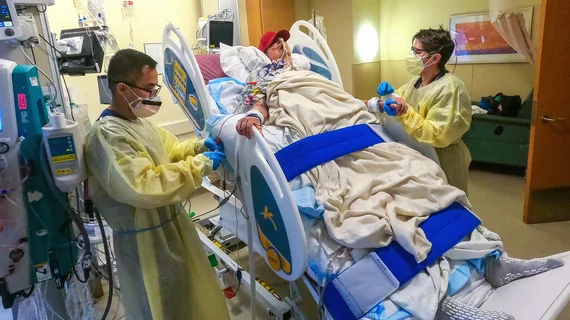Pig heart transplant patient doing well weeks after procedure—he even watched the Super Bowl
Several weeks after cardiac surgeons transplanted a modified pig heart into a human patient for the very first time, the patient appears to be on his way to recovery.
The modified pig heart was transplanted into 57-year-old David Bennett on Jan. 7 at the University of Maryland Medical Center (UMMC) in Baltimore. Before the procedure, his request for a conventional human heart transplant had been denied by several transplant centers, including UMMC.
Christine L. Wells, PT, PhD, an associate professor with UMMC’s department of physical therapy and rehabilitation science, has met with Bennett almost daily since the transplant to work on his strength, coordination and balance. She detailed his progress in a new video interview shared by UMMC.
“He’s quite courageous,” Wells said in the video. “There are lots of people out there rooting for him who contact me all the time … it’s a pleasure working with him.”
One of her most immediate goals for Bennet is to help him reach the point where he can stand up in a chair long enough to potentially be taken to other parts of the hospital. Wells noted that he was feeling well enough to watch Super Bowl LVI between the Los Angeles Rams and Cincinnati Bengals on Feb. 13.
“He was very much engaged in seeing the game,” Wells said. “His spirit lifted when he heard some of the singing going on.”
Bennett even started softly singing along with “America the Beautiful,” Wells added. She described it as “a special memory I’ll always cherish.”
Read more about the transplant procedure — ‘A historic, monumental step forward’: Surgeon transplants modified pig heart into a human patient for first time
Related Cardiac Surgery Content:
How modified bioprosthetic heart valves could limit calcification, reduce need for TAVR
Debate over? On-pump CABG, off-pump CABG lead to similar 10-year outcomes
TPVR with the Melody valve associated with strong 10-year outcomes, helping patients avoid surgery

